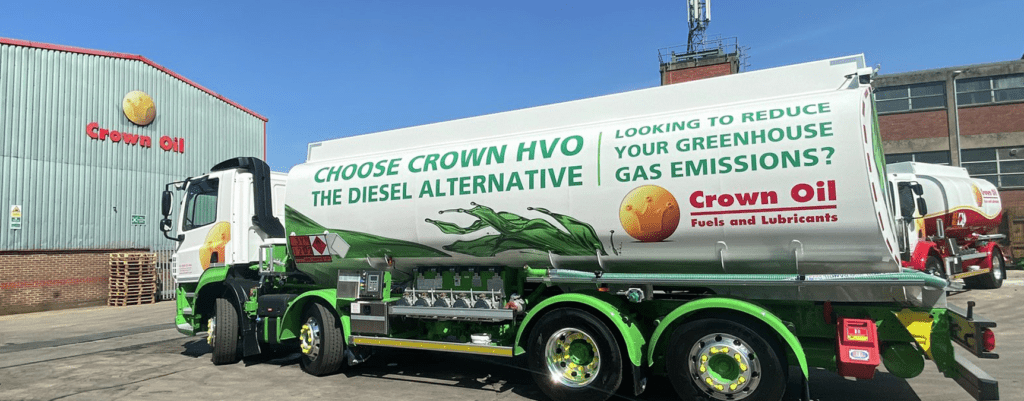
Some of these voices, similarly to far too many in this space, are not impartial in their views, being, as they are, supporters, manufacturers or providers of competitor technologies. However, there are also those who have genuine questions around the environmental impact of solutions.
To achieve the desired outcome of decarbonisation across all sectors, significant and rapid emission reduction, and a route to net zero, many of those operating in the energy sector will need to make a mind-shift move away from lobbying for their own ‘silver bullet’ and accept the need to embrace all the available solutions.
A common goal
The common goal – to remove as much carbon as possible – must be front and central of all our considerations. The only way to achieve this, quickly and efficiently, is to employ as many different technologies as are available and fit for purpose.
And, surely, the best solutions will be the ‘best fit’ solutions – those that fit the circumstances of the customer in terms of affordability, practicality and effectiveness. But every action we take has consequential impacts and it is the concerns surrounding these impacts and their tolerability that creates arguments over the ‘right’ way forward.
As the case for incentivising the use of HVO as an immediately effective solution to decarbonisation gains momentum it is no surprise that those with concerns regarding HVO are also increasing their volume.
The main concern around the use of HVO centres on the sustainability of their provenance (what feedstocks are used) and there are genuine questions for those who, in doing a ‘right’ thing, wish to avoid unintentionally also doing a ‘wrong’ one. It is, perhaps, surprising that HVO is singled out for scrutiny in this way as the rules around the proper use of raw materials and how carbon intensities are calculated are enshrined in law.
Furthermore biodiesel, which uses exactly the same raw material suite, is not singled out in this way. Perhaps the reason for this is the drop-in nature and versatility of HVO, as those concerned about its use realise that the technical constraints that biodiesel faces are not present with the use of HVO?
Verified sustainability
Sustainability is a significant consideration, and all solutions need to be considered in the light of their entire impacts on the environment as well as human and animal welfare. It is as important to consider the environmental and human rights issues around Lithium extraction for batteries as it is to consider the carbon intensity of transporting biofuels from production to end user.
In terms of the specific question with regard to the feedstocks for production of HVO, the HVO distributed in the UK is entirely manufactured from waste. The EU has extremely strict guidelines on this and producers and consumers of renewable liquid fuels, such as HVO, recognise that waste, as a feedstock, must be the future for these fuels, or a move to synthetic production when that becomes viable. Work is already underway to drive this forward and it is very likely the other fuels with similar positive traits to HVO, but utilising other waste streams, will become available in the coming years.
The use of palm oil is not allowed in the UK. However, with the use of used cooking oil (UCO) in the production of HVO, concerns have been raised that palm oil may be used in local markets to replace UCO that is exported for HVO production. Awareness of such potential issues means that steps can be, and are being, taken to ensure true sustainability.
There is little value in the feedstock for HVO used in the UK being derived from UCO if that may be being replaced in the source market in a way that means it is not actually leading to a genuine reduction in emissions and it is critical to the entire chain, and to uptake by end users, that there is genuine and verified sustainability.
Often the use of UCO as animal feed is cited as being a potentially more sustainable route (rather than conversion into fuel), however, what isn’t acknowledged is that the EU and UK do not allow this for health reasons and, in China, UCO recycling was recently banned as it was proven to be causing health problems in individuals who had eaten food prepared from reprocessed cooking oil.
There were issues with first-generation biofuels, in terms of land use and feedstocks, which led to sustained pressure on government to facilitate improved levels of used cooking oil recycling to concentrate on production from recyclable materials. Analysis has shown that, if used cooking oil collection in the UK was up to standards of other countries, it would provide enough UCO feedstock for at least 10% of our total HVO requirements for off-grid heating.
Proof of sustainability
Simon Lawford, technical sales manager for Crown Oil, considered the issue of genuine sustainability in a previous article, highlighting the process that is in place to address these concerns.
“The Renewable Energy Directive (RED), which was brought into UK law as a part of the BREXIT transition process, outlines the need for renewable fuels and provides targets for member states. It also describes the raw materials that are permitted when manufacturing a renewable fuel and the way in which overall final carbon loadings should be calculated in the form of an LCA (lifecycle analysis) which is included to point industry in the right direction.

“Importantly, RED also requires that both raw material and producers of renewable fuels need to be registered with an approved validation scheme ensuring formal audit trails are in place, culminating in the presentation of a Proof of Sustainability (POS) for each batch of fuel manufactured.
“Here in the UK, the Department for Transport (DfT) further directs which renewable fuels are allowable and placed onto the market for road and NRMM applications via the Renewable Transport Fuel Obligation (RTFO).
“Largely mirroring the requirements of RED, the RTFO sets boundaries for fuel sourcing, minimum GHG (Green House Gas) savings and places a second verification audit in place to ensure that a POS is acceptable and that the fuel supplier is indeed supplying the fuel that it is committing to when applying for Road Transport Fuel Certificates (RTFCs). Without this, a biofuel would not be a commercially viable option for end users.”
Checks and balances
In summary, for a biofuel to be bought and sold in the UK market, the following checks and balances are in place:
- Raw material suppliers must be registered with an independent auditor
- That auditor must audit (yearly) the supply chain and each holding tank
- Materials transported for the manufacture of renewable fuel in Europe and the UK must be accompanied with a Proof of Sustainability document
- Manufacturers of fuel must be registered with an independent auditor and all production sites and individual raw material and finished product tanks audited on a product in vs out basis
- As a receiver of fuel, a UK supplier must first have the POS for the fuel imported approved by the department of transport
- All sales must be verified independently, and the results of the verification confirmed to the DfT
In terms of heating oil, the above process is also followed, and is independently audited by the ISCC. In addition, the British Research Establishment (BRE) have calculated the carbon intensity for the purposes of the Standard Assessment Process (SAP) for buildings at 88% of the carbon intensity of heating oil.
The combination of RED and RTFO provide a legislative process by which industry claims of genuine sustainability can be measured and verified, offering end consumers the peace of mind that the alternative liquid fuels being brought to market by this industry are being done so not just to the letter of the law but also within the spirit and enable consumers to shift from being part of the problem to being part of the solution.

Whilst comprehensive, the above checks only apply to fuel up until importation, and do not cover onward distribution to the end user. To close this gap Zemo has introduced the Renewable Fuel Assurance Scheme. Members of the scheme are audited on a yearly basis and provide their customers with RFAS certificates on a quarterly basis. These certificates are only transferable between accredited suppliers across the logistics chain.
The RFAS scheme piggy backs on regulated checks and balances requiring the distributor to prove that the fuel they have sold and certified is compliant. The RFAS scheme is the only way currently to verify fuel at the point of the end user and customers are therefore encouraged to purchase their HVO through an accredited suppler.
This comprehensive suite of legislative checks and balances ensures that those making the switch to HVO can, through the process outlined above, have confidence in its verified sustainability.


